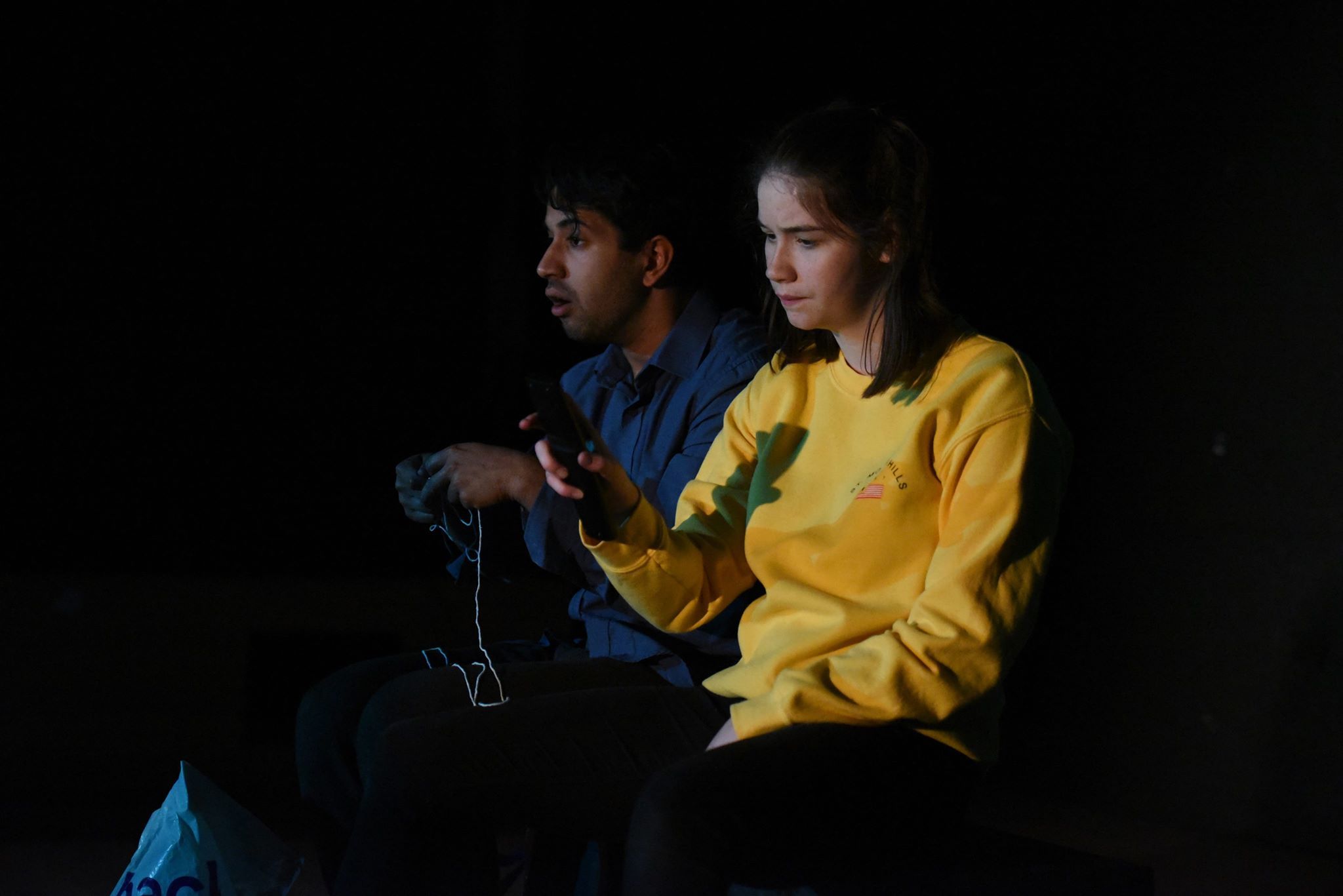
Aaron review: ‘Heart-wrenching and eye-opening’
Aaron is back with a bang
A simple set, lit with neon rays and the droning synths of Fatima Yamaha, bore the backdrop to some remarkable performances in Florence Petrie’s Aaron.
The title character, played by Mo Hafeez, suffers from a condition called Prader-Willi Syndrome. A difficult task for even the most skilled actors, yet Mo commands this role naturally, handling the stutters and sporadic physical movements with ease. Aaron is at the centre of an increasingly fragmented family, played by Catherine Wright, Patrick Palmer, Max Greenhalgh and Isabel McGrady.

Wrong Tree’s signature use of physical theatre to tell their story is effective and evocative, as we see the gradual deterioration of Aaron’s health and the relationship ties that hold his family together. Each set piece is well choreographed, and the movements provide a meditative posterior to the central character; as the family revolves around Aaron, so too do the physical aspects of the production.
The hand movements and the act of hugging are played out to suggest a physical and emotional detachment between characters to great effect. The climatic scene, in a supermarket, presents Aaron in a bittersweet state of bliss amidst his favourite pastime: shopping and eating food. Though it ultimately harms his health, it combines the impeccable tech and astute direction to create an ingenious false sense of euphoria.

Aaron is heart-wrenching, it is eye-opening, it asks questions about our government’s attitude to people with PWS. Towards the end of the play, Aaron’s mother, Anne, tells us rather bleakly: “There’s nothing we can do”. It is this sentiment that the play seeks to overturn.
By telling this story, through the eyes of each affected member of the family, Aaron has the potential to break social barriers concerning PWS. The audience expects some form of comfort throughout, yet we are left dissatisfied, and perhaps quite rightly so, since this piece of theatre seeks to cry out for attention in a certainly impressionable fashion. This is a story that needs to heard by the young and old alike.









































